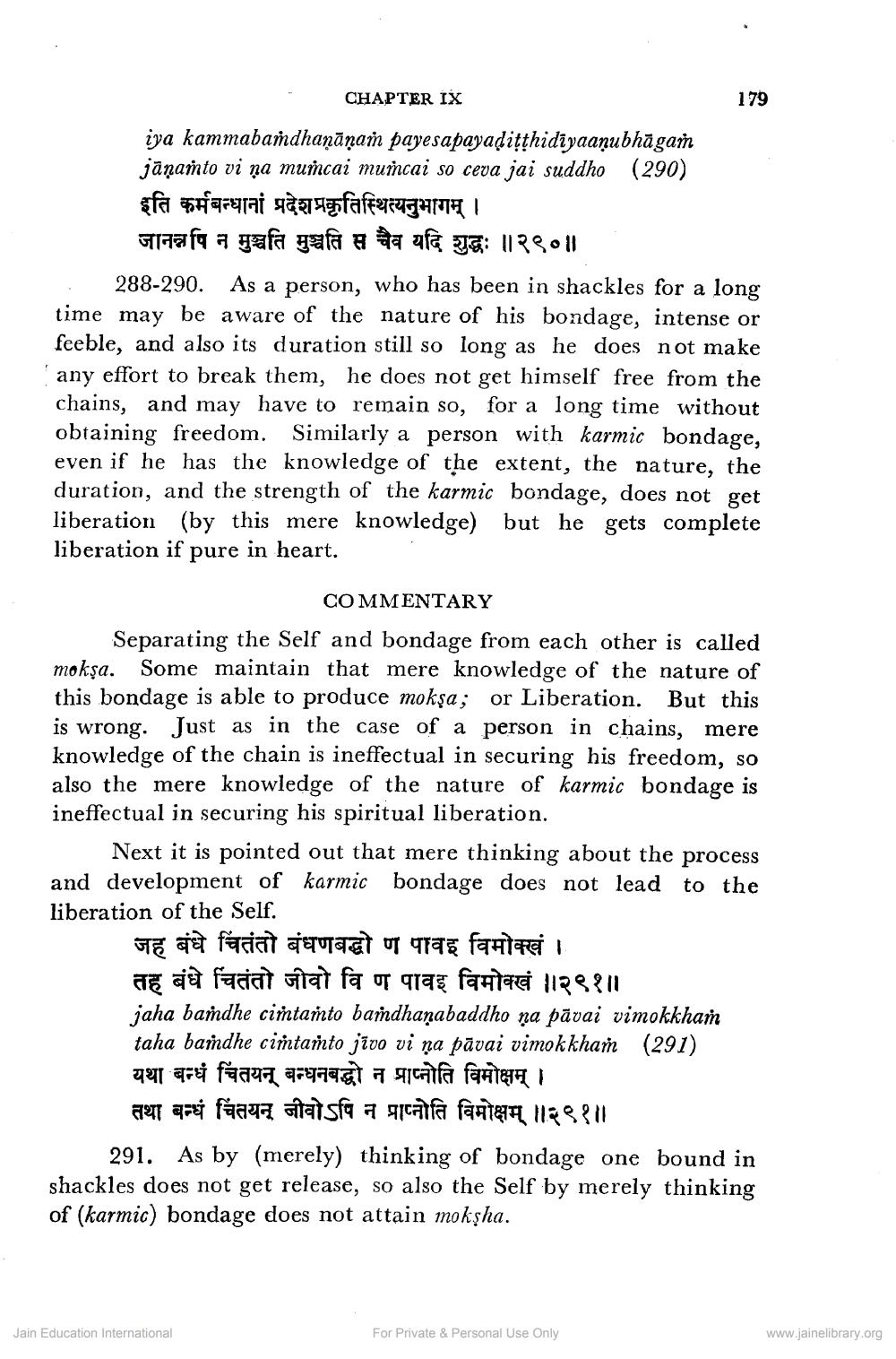________________
CHAPTER IX
iya kammabamdhaṇāņam payesapayadiṭṭhidiyaaṇubhāgaṁ jāņaṁto vi na mumcai mumcai so ceva jai suddho (290)
इति कर्मबन्धानां प्रदेश प्रकृतिस्थित्यनुभागम् ।
जानन्नपि न मुञ्चति मुञ्चति स चैव यदि शुद्धः ॥२९०॥
288-290. As a person, who has been in shackles for a long time may be aware of the nature of his bondage, intense or feeble, and also its duration still so long as he does not make any effort to break them, he does not get himself free from the chains, and may have to remain so, for a long time without obtaining freedom. Similarly a person with karmic bondage, even if he has the knowledge of the extent, the nature, the duration, and the strength of the karmic bondage, does not get liberation (by this mere knowledge) but he gets complete liberation if pure in heart.
COMMENTARY
Separating the Self and bondage from each other is called mokşa. Some maintain that mere knowledge of the nature of this bondage is able to produce mokşa; or Liberation. But this is wrong. Just as in the case of a person in chains, mere knowledge of the chain is ineffectual in securing his freedom, so also the mere knowledge of the nature of karmic bondage is ineffectual in securing his spiritual liberation.
179
Next it is pointed out that mere thinking about the process and development of karmic bondage does not lead to the liberation of the Self.
जह बंधे चिंतंतो बंधणबद्धो ण पावइ विमोक्खं ।
तह बंधे चिततो जीवो वि ण पावइ विमोक्खं ॥२९१॥
jaha bandhe cimtamto bamdhanabaddho na pāvai vimokkham taha bamdhe cimtamto jivo vi na pavai vimokkham (291) यथा बन्धं चितयन् बन्धनबद्धो न प्राप्नोति विमोक्षम् ।
तथा बन्धं चिंतयन् नीवोऽपि न प्राप्नोति विमोक्षम् ॥ २९९ ॥
Jain Education International
291. As by (merely) thinking of bondage one bound in shackles does not get release, so also the Self by merely thinking of (karmic) bondage does not attain moksha.
For Private & Personal Use Only
www.jainelibrary.org




